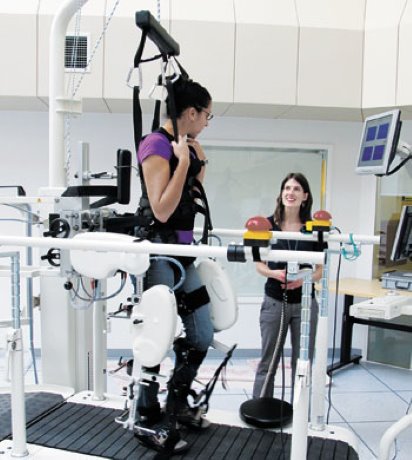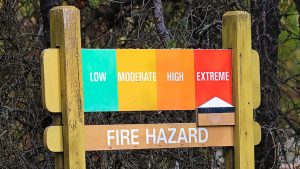In the last 10 years, trades professionals working in Alberta have raised more than $5 million through the Building Trades of Alberta’s (BTA) worksite lotteries.
In the last 10 years, trades professionals working in Alberta have raised more than $5 million through the Building Trades of Alberta's (BTA) worksite lotteries. It's believed to be the only such program in Canada. Union members sell lottery tickets to anyone at the workplace with some of the proceeds turned over to various charities or organizations.
“Other provinces have asked about this, but no one is doing it,” said Ron Harry executive director of the BTA, which represents 60,000 union members from 15 trade union and 20 local offices.
“Alberta tends to have these trendsetting things.” It’s worthy to note that Alberta is home to mammoth construction projects, many of them associated with the oil and gas industries. Often various forms of gambling, such as cheque pools, brass pools and hockey pools proliferated at workcamps, where up to 7,000 people or more could be employed. A decade ago, the BTA decided to get involved.
“Let’s get them legalized, above board, make them legitimate lotteries” said Harry, who has been executive director since 2006.
So, the BTA worked with the RCMP, local authorities and the Alberta Gaming and Liquor Commission to develop a lottery program run by volunteer building trades members. The gaming commission continues to train BTA ticket sellers.
When the BTA applied for its permit, the winner got 80 per cent of the proceeds and the BTA Charitable Foundation got 20 percent. But, in the wake of 2008’s economic downturn, which resulted in fewer jobsites, last year 70 per cent went to the winner and 30 percent to the Foundation, said Harry, who is also president of the foundation.
It’s still much better than the 50/50 traditional lottery split, he added. An indication of the strength of sales, just over one year ago, the BTA’s largest prize ever of $486,000 was awarded to two winners, who had bought a $40 ticket.
Draws are held once a week in the wholly voluntary lottery. There are $10 tickets, $20 tickets and $40 tickets, which are sold during holiday periods. Contractors and clients give the BTA permission to sell at worksites, which are the only place where sales are allowed. Sometimes, non-union workers, such as planners or engineers, will win.
And keeping with union tradition, it’s a bit of a closed shop. If the BTA hears of another lottery onsite, the operators are told to pack it in because a legal lottery is already functioning, he said.
Tom Sigurdson, executive director of the B.C. and Yukon Territory Building and Construction Trades Council said worksite lotteries haven’t appeared in B.C. to his knowledge and it’s not even on the radar. “It won’t develop here,” said Sigurdson, who recalled worksite cheque pools from his days spent labouring on hydro projects in the 1970s.
In Alberta, hundreds or even thousands of people can be found at a jobsite. They’re often at camps, where it’s easy to co-ordinate ticket sales, he said.
In B.C., the jobs are smaller and workers are often scattered across a multitude of locations, which makes ticket selling more challenging, Sigurdson noted.
Considering that the foundation has handed out more than $5 million in donations to various groups, at least $25 million worth of lottery tickets have been sold since the worksite lottery was launched in 2001.
To distribute the largesse, the BTA Charitable Foundation developed application guidelines for organizations and charities.
When the foundation considers requests, one of the deciding factors is the charity’s reach. The foundation likes to give money to charities that work for everyone, not just one group.
The foundation’s charity of choice is diabetes. It’s already given a total of $2.5 million to the Juvenile Diabetes Research Foundation, the Diabetes Research Institute Foundation Canada and the Canadian Diabetes Foundation. Another $500,000 was given to Alberta’s Shock Trauma Air Rescue Society (STARS).
Last year, the BTA Charitable Foundation gave $1 million to the Glenrose Rehabilitation Hospital for its Courage Centre, which opened late last year in Edmonton. The centre’s clients mesh nicely with the BTA’s wish to support initiatives that serve a broad spectrum of the population.
The centre will serve children, seniors, workplace accident victims and stroke patients. Now named the Building Trades of Alberta Courage Centre, the $4-million facility features more than $2 million of the latest technologies for orthopaedic, brain-injury and geriatric rehabilitation.
Robotics and powered walking systems help children and adults relearn how to walk. Computer simulations help stroke victims test their abilities in a safe environment. Teleconferencing technology is used to assess cardiac patients, who live long distances from the Centre.
Harry noted that the centre not only serves Alberta residents, but patients from northeastern B.C. and parts of Saskatchewan as well.
The International Brotherhood of Boilermakers Local 146, the Alberta Regional Council of Carpenters and Allied Workers, the United Association of Plumbers and Pipefitters Local Union 488 and the Construction and General Workers’ Union Local 92 have each made an additional commitment of $500,000 for new rehabilitation equipment and technology.











Recent Comments
comments for this post are closed